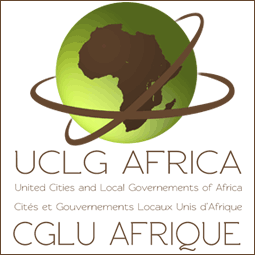Nigeria: Nigeria: Electricity in Nigeria - A Disturbing Dimension
2012/11/27
Each time Nigerians grumble over the failure of successive governments to provide them with electricity, government officials are quick at pointing out that Nigerians are impatient adding that ours is a country seeking to enjoy within a few years in existence what the developed nations got after hundreds of years.
No makes effort to verify the accuracy of such 'official' statistics. Instead, everyone tends to note the counseling by government with mixed feelings hoping for some change in the near next which has never come. Getting the true position is however not exactly as hard as we imagine in view of the ease with which this writer gathered from journal a few days ago that electricity was first produced in Lagos, Nigeria in 1896 less than 15years after it happened in England. Thus, we have as a community been dealing with electricity in the last hundred and sixteen years. This revelation renders absurd, the charge that Nigerians are impatient about development and some level of improvement in their daily lives. Could it then be true that official deceit additional than anything else, is our real dilemma concerning electricity? As we shall show shortly, a new trend in the disposition of elected office holders to the activities of the Power holding Company of Nigeria (PHCN) tends to lend credence to the theory.
It would appear that because our leaders have 'light' most of the time, they hardly understand the common man's unending pains of darkness. First, they are serviced by generators from our common purse. Second, virtually amount of the little power the country can produce is always given to those in the corridors of power. It was so when the subject was handled by the Public Works Department (PWD) from the beginning of colonial times till 1950. There was no change from then till 1972 when it was under the Electricity Corporation of Nigeria (ECN) and it has remained so since 2005 when the PHCN was established. Interestingly, the leaders have a tendency of not paying for services rendered to either their homes or offices. Whenever "there is a break in transmission" in their areas for a few minutes, a near war situation is declared on PHCN and their operatives are assaulted at will. This bizarre dimension is no doubt disturbing.
For example about a week ago, the management of the Kaduna Electricity Distribution Company, KEDC, a subsidiary of the PHCN, accused the Governor of Sokoto National, Aliyu Wamakko of personally assaulting its workers. According to the Acting Managing Director of the Company, Mohammed Adamu, Governor Wamakko, flogged a PHCN manager for failing to supply electricity to his community. Adamu at a press conference on the subject described the assault which took place on Saturday, 20th October, 2012, as an unusual and unfortunate event which was beyond his company's comprehension. He explained that his business manager for Gwiwa Business Unit, Sokoto national, Moses Osigwe, was invited by the Governor to his personal residence, over the issue of lack of power supply to his hometown, Wamakko, as a result of a failed 2.5MVA transformer. He added that as the business manager was trying to explain the problem, the governor brought out a horse whip (popularly known as bulala in Hausa language) and lashed him exhaustively hefty mobile police men were allegedly ordered by the Governor to continue with the beating spree until the business manager fell on the ground and became unconscious other PHCN operatives- namely, Isyaku Daura, Officer 2 (Electrical) and Nuruddeen Mohammed, Staff 1 (Lines) were similarly reportedly manhandled.
On its part, the government denied the allegation. According to the Senior Special Assistant to the Governor, Sani Umar, the Governor only demanded an explanation for the N17 million he gave to PHCN to install a new transformer in Wamakko which they failed to do. We would have doubted the PHCN version of the story because it looked too barbaric and uncivilized to be credited to a Governor but for the fact that the allegations were made at an open Press Conference. In addition why should the lives of workers like Isyaku and Nuruddeen be in jeopardy on account of the PHCN's alleged breaches? This is the second time this year that a statement of assault by national government officials on PHCN staff has been made public. The first time was when officials of the Ekiti national Government allegedly beat up PHCN managers operating in Ado Ekiti. The Managers-Messrs, Julius Ige, in charge of Marketing and Ilori Kayode Brown, Chief of Public Relations were reportedly abducted in the night of Friday June 29 by aides to the national Governor and 'brutally' held till 1.15am of the next day because PHCN disconnected power supply to the Government Home over repeatedly demanded but unpaid electricity bills. While there is nothing wrong in prodding PHCN to be proactive, to assault their staff in the process leaves the country not just in the dark but indeed in the jungle.
Since no law permits government officials to manhandle fellow citizens, the above reports ought to draw attention to no less than 2 significant issues. The first is the continued retention of immunity clause in our constitution which stops the common man from suing "Area-Boy" governors who unduly inflict pain on the less privileged.
The immunity clause in S308 of our constitution which is designed to discourage anyone from using litigation to distract elected executives cannot remain if we cannot evolve a specific provision to discourage the same executives from impunity. Does the immunity clause empower elected executives to take the laws into their own hands and abridge the policy of law? The second issue is the vexed subject of National Police. National Governors in Nigeria only remember that they have no powers over the Police when they are accused of not tackling insecurity in their States. They don't tell us why in spite of their acclaimed disability, they are always able to use the same federal police to harass their real or imaginary opponents. Can anyone imagine what would have happened to the PHCN officials in Sokoto if the Governor had what is called National Police?
- Comments
- Related Articles
-
Minister of Petroluem resources, Diezani Alison-Madueke
2012/12/31 Minister of Petroluem resources, Diezani Alison-Madueke has said that with the current national consumption rate at 110,000 metric tonnes (MT) per annum of Liquified Petroleum Gas (LPG), Nigeria is ranked part the lowest consumers of LPG in Africa. Speaking at the opening of the LPG Strategic Workshop and Conference in Abuja, the minister said growing the LPG market in Nigeria is a critical component of the country’s Gas Master plan. -
MCC Selects Countries Eligible for New Programs
2012/12/30 At its quarterly conference December 19, the U.S. Millennium Challenge Corporation (MCC) board of directors selected Liberia, Niger, Sierra Leone, Morocco and Tanzania as eligible to develop proposals for new compacts, and Guatemala as eligible for a Threshold Program. "This year's selection decisions are a testament to the 'MCC Effect,' the ability of MCC to provide incentives for nations to adopt policy reforms and strengthen institutions in order to become eligible for an MCC compact," said Daniel W. Yohannes, MCC's chief executive officer. -
Infrastructure evolution set to test tower space
2012/12/29 We have come to expect technology advances that result in consumer electronics equipment getting smaller, additional powerful and in most cases cheaper. This process can be seen in the hands and pockets of most consumers where that smartphone or tablet device houses additional processing power and came at a cheaper price than desktop computers of a decade ago. -
Airtel Nigeria Completes LTE Trial
2012/12/27 Mobile service provider Airtel Nigeria has taken a giant stride in its quest to pioneer innovation and lead a new phase of telecoms revolution in the country as it announces the successful completion of the Long Term Evolution (LTE) trial in Lagos, the commercial nerve centre of Nigeria. LTE, widely accepted as the true 4G, is a standard for wireless communication of high-speed data for mobile phones and data terminals. It is based on advanced network technologies with a central focus of increasing the capacity and speed using a different radio interface together with enhanced core network. -
Efforts to improve critical routes on federal roads
2012/12/27 A whopping N500 billion would be required annually for the next years to fix Nigerian ailing roads and bring them to sync with road infrastructure development in other thriving nations in the world. This was disclosed recently by the Minister of Works, Mr. Mike Onolememen. Onolememen who is an Architect, told the Home of Representatives' Committee on Works that the average annual budget of about N100 billion for road development is grossly inadequate for the country's 35,000 kilometre of Federal roads.
-
- Trending Articles
-
- GABON: Final day of the New York Forum Africa in Libreville 2012-06-25
- TURKEY: Turkey Real Estate 2012-07-24
- AFRICA: Ethiopia, Zambia, Cape Verde: Clarification on the management of television and radio rights
- BRAZIL: Brazilian Gradiente launches IPHON
- MEXICO: Another stab at radical change in telecommunications
- TANZANIA: Tanzania to restrict size of land investors can lease



.gif?1356023993)
.gif2_.gif?1356029657)




